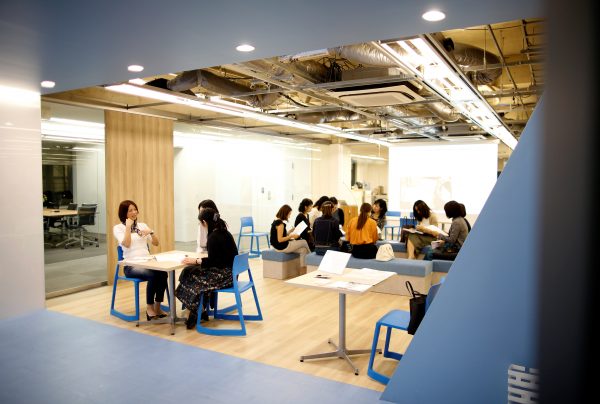But if this goal is achieved, who will look after the children, the elderly, the disabled and ill? Although both women and men participate in care, global estimates show that women assume responsibility for around three-quarters of all unpaid domestic and community labour.
Tensions between women’s participation in paid work and unpaid care work are especially acute in Asia and the Pacific. In this region, women perform more than four times as much unpaid labour as men. Managing this unpaid workload makes it difficult for women to increase participation in paid employment at a level commensurate with their increasing levels of education and training.
Home to over half the world’s population, the Asia Pacific is diverse and changing rapidly, with economic growth delivering new opportunities for women. Hundreds of millions of young rural women have been drawn into factory work, English-speaking women are employed in call centres and back-office processing centres, and highly educated women are engaged by local and global firms in the full range of professional services. This changing employment landscape, alongside other social and economic changes, has significant implications for households and for the care work traditionally performed by women.
Data from Indonesia, the Philippines, Vietnam and Myanmar reveal some of the key points that must be addressed if women’s participation in paid work is to increase. In all four countries women’s labour-force participation remains below men’s, even though it has increased steadily since 2000. High rates of informal employment, common to the region, mean that most women in paid work remain beyond the purview of labour laws and have little or no access to critical social protections like paid maternity leave.
Even when women are formally employed and covered by workplace laws, problems with implementation are pervasive and leave black letter law impotent in the daily lives of many women workers. The gender pay gap, limited access to career progression and associated underrepresentation in senior management roles weaken many women’s attachment to the labour market.
Demand for care is also intensifying. Despite falling fertility rates, care for children remains a pressing issue in Indonesia, the Philippines, Vietnam and Myanmar. Rapidly ageing populations also raise the demand for care services. Between 6 and 10 per cent of the population in all four countries is projected to be over 65 years of age by 2026.
Governments are vital in delivering social services to help households reconcile their work and care responsibilities. Currently most Southeast Asian governments report low public expenditure on such essential care infrastructure as public childcare, aged care services, age or disability support pensions and maternity leave.
Governments are beginning to pay attention to these issues, but Indonesia, the Philippines and Vietnam still spend less than the regional average on these services. Yet recent International Labour Office calculations show that even low-income countries can afford the cost of social protection for the most vulnerable citizens.
Inadequate government provision of social services infrastructure leaves millions of households across Southeast Asia reliant on low-paid, unregulated and mostly female domestic labour. The unregulated nature of this work leaves many care workers vulnerable to exploitation and abuse. The long hours associated with many of these jobs makes it difficult for these women workers to manage their own care responsibilities. Decent jobs for informal and formal domestic care workers will be essential in making sure that all women are able to reconcile their work and care duties.
Investment in care infrastructure must be part of the workforce participation agenda. Official efforts to improve economic empowerment and security for women requires unpaid care work to be recognised, reduced and redistributed. This will require considerable expenditure on essential care infrastructure and may challenge small and low-income countries in Southeast Asia. But failure to build gender equitable workplace and public care infrastructure will leave global calls for an increase in women’s labour market participation floundering.
Care infrastructure includes legislated workplace policies that allow for family and community care, publicly funded formal care services, and decent work and wages for the care workforce.
While care work is essential to the gender equality equation, it is rarely included in standard prescriptions for increasing women’s economic participation. This is partly because women’s unpaid household labour is not included in GDP, leaving care work invisible to policymakers. But the significant gains to national prosperity and well-being attached to women’s increased economic participation make this an urgent issue.
Workplace and public policy design that promotes recognition and redistribution of care between men and women is essential for gender equality at work and in the home. If women are to take up their rightful place in the region’s workplaces, men will have to step up and take on additional care work. Generating a global understanding that care roles can and should be shared between men and women can act as the first step towards more gender-equal work and care.
Elizabeth Hill is Associate Professor of Political Economy at the University of Sydney.
Marian Baird is Professor of Gender and Employment Relations at the University of Sydney.
Michele Ford is Director of the Sydney Southeast Asia Centre and an ARC Future Fellow at the University of Sydney.
This article is abridged from a version that appears in the latest issue of East Asia Forum Quarterly, ‘Investing in Women‘.

